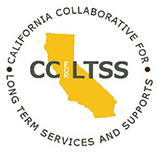Sacramento locals are proud of the brand new Golden 1 Center, home of the NBA Kings. For basketball games, seating capacity is 17,500. The team would have to sell out 35 games in a row to represent the number of Californians today living with Alzheimer’s disease. It would take 86 consecutive games to seat every family caregiver supporting a loved one with dementia in our state.
Unlike other threats to the golden state, such as climate change, affordable housing and transportation, Alzheimer’s poses an equal but less visible threat – one that is too often overlooked because of stigma, the #1 problem identified in California’s State Plan for Alzheimer’s Disease. Stigma obstructs access to care, with fewer than 50 percent of people with Alzheimer’s or their caregivers reporting being told of their diagnosis as compared to more than 90 percent of people with the four most common types of cancer. In this era of whole-person care, a key ingredient – accurate Alzheimer’s diagnosis – is missing in the care plan more than half the time.
Failure to diagnose and discuss Alzheimer’s impacts the entire health care continuum, from in-home supportive services to acute hospitals. Two out of three persons with a cognitive impairment have at least one co-occurring chronic condition, such as asthma, cancer, diabetes or heart disease. Alzheimer’s disease may worsen the other conditions or interfere with treatment. To illustrate this point, Medi-Cal spending for a senior without dementia averages less than $600 per year. With Alzheimer’s, the number climbs to $11,338 annually. In 2015, California spent $3.3 billion on Medi-Cal beneficiaries with the disease. By contrast, family members contributed $22 billion in unpaid care.
Promising practices exist; California is home to model programs that lower costs, improve quality and optimize access. Though limited in reach, the Medi-Cal Assisted Living Waiver benefits persons with Alzheimer’s disease in 14 counties, providing residential care for beneficiaries who require 24/7 support without needing high cost nursing home care. More than a dozen Alzheimer’s Day Care Resource Centers serve community members in the early to moderate stages of the disease, offering socialization supervision and specialized programs. The 10 California Alzheimer’s Disease Centers at UCSD, UCI, UCLA, USC, UCSF, UCD and Stanford, train clinicians, assess patients and support family caregivers. For several decades, the 11 Caregiver Resource Centers have assisted adults with brain impairments, with a majority of clients presenting with Alzheimer’s disease. And in recent years, California has tested the concept of integrating Medicare and Medicaid payments for dual eligible beneficiaries in select counties under the Coordinated Care Initiative. On the horizon are opportunities to expand palliative care options under Medi-Cal, as well as new Community Based Adult Services centers opening in underserved areas.
Each of the aforementioned programs underpins California’s system of long-term services and supports. But what is glaringly absent is a comprehensive strategy to deliver these benefits statewide. Unfortunately, for an individual diagnosed with Alzheimer’s disease in our state, location matters. Some areas are devoid of all services, others are rich with resources. Navigating a fragmented system, on top of a cognitive impairment, adds insult to injury for hundreds of thousands of Californians. Compounding this challenge is the nonsensical way in which eligibility is determined differently for each program. In some settings, income is the driver; in others it may be physical activities of daily living; and still others consider a cognitive impairment. Universal assessment tools could improve efficiency and reduce expense.
The individuals and families who call the Alzheimer’s Association’s 24/7 helpline (1-800-272-3900), visit the organization’s website (alz.org) or walk through one of 19 chapter office doors are looking for answers that are hard to find, or, worse, nonexistent. As one caller recently said, quite simply, “I just need someone to come to the house two hours on Tuesday night so I can go to my bible study at church.” In her mind, this was a simple request. Sadly, in California’s complex long-term care delivery system simple solutions are hard to come by.
 Susan DeMarois serves as the state policy director for the national Alzheimer’s Association in Sacramento where she oversees the nonprofit organization’s legislative, regulatory and budget portfolio on behalf of the 610,000 Californians living with Alzheimer’s and the 1.5 million family members who provide care to a loved one with dementia.
Susan DeMarois serves as the state policy director for the national Alzheimer’s Association in Sacramento where she oversees the nonprofit organization’s legislative, regulatory and budget portfolio on behalf of the 610,000 Californians living with Alzheimer’s and the 1.5 million family members who provide care to a loved one with dementia.

